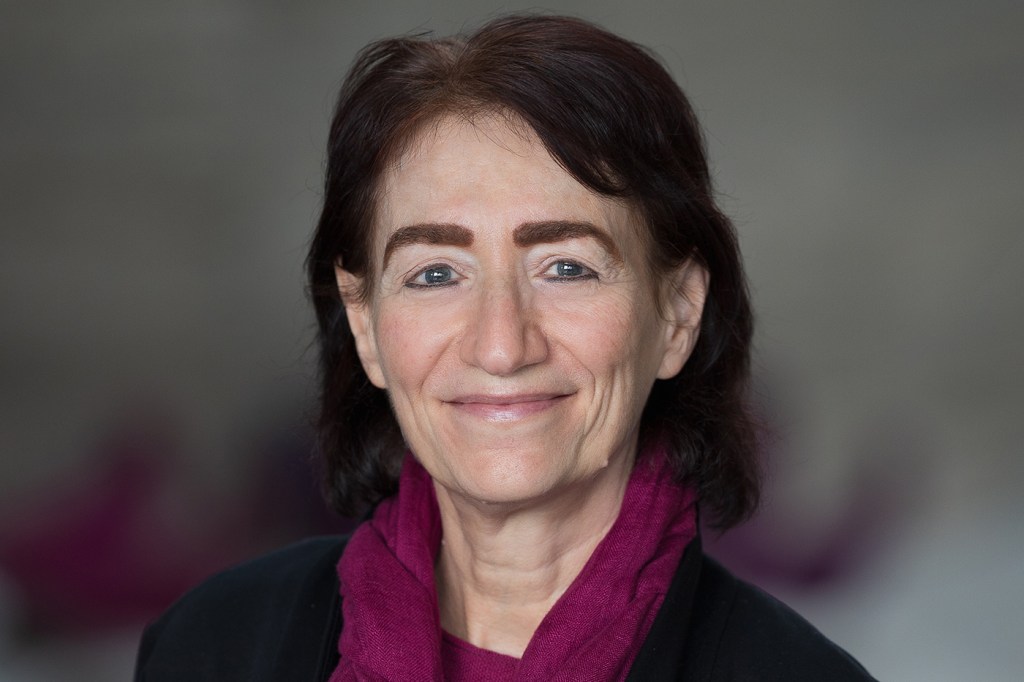Dean of the College of Science and professor of biology Hazel Sive was awarded an honorary doctorate of engineering from her alma mater, the University of the Witwatersrand (lovingly known as “Wits”) earlier this month, in Johannesburg, South Africa.
Sive began her scientific career at Wits when a professor, Robin Crewe, gave her a unique assignment. “He entrusted me to go and find the other half of the musical instrument by which ants sing,” she says. “It was known that they rubbed their foreleg against somewhere on their head.” This motion created a sound the ants used in everyday life, but no one was quite sure how it worked.
“I really knew nothing,” Sive says about being thrown into the deep end. “I had to go and learn what scanning electron microscopy was, and how you prepared the ants for the imaging,” which involved coating them with silver before bombarding them with electrons.
This experiment led to her first scientific discovery: a series of identical ridges along the ants’ heads. She didn’t know what they were at first, but with professor Crewe she realized that these were “what the bow of the front leg [draws] across, like the strings of a violin,” producing the ants’ own sonata.
She credits this first discovery with laying the groundwork for the rest of her scientific career, an interest in precision—how identical, complex systems arise out of what were once individual cells—and in the “mistakes” that arise out of those same processes.
“I was just exploring an interesting job, more interesting than the other jobs that I was doing, working in a store and selling sweaters,” she says. But the experiential learning she acquired at Wits changed the course of her life.
Of the honorary doctorate, Sive says that it was “really wonderful to have the acknowledgement,” and herself acknowledged that “your undergraduate university is important to you, and never lets go.” She’s seen the same effect on Northeastern undergraduates, involved in their own process of experiential learning and self-discovery.
In September, Northeastern and Wits signed a memorandum of understanding, signaling their desire to work together and increase collaboration. The recognition of Sive’s work is another link in the growing association between the two universities.
Talking about the qualities that make Wits and Northeastern such a good match, Sive said that both are “ambitious and excellent.” She also cites the innovation that occurs at both universities, “new ways of master’s training, new research directions, finding the best research funding opportunities to allow people to work together. So the universities are really well-matched in terms of their philosophy of doing business.”
Further, Northeastern’s interest in reaching out to African countries “is a priority,” Sive says, with engagements like the Africa Global Initiative top of mind.
In her talk to the graduating students at Wits this December, Sive wanted to convey that “the door doesn’t close on learning because your degree is finished.”
“Don’t be scared to admit to yourself or someone else what you don’t know,” she said in her speech. “Go look it up, ask, or figure it out. I still work hard to fill the gaps of my knowledge. This is Lifelong Learning.”

